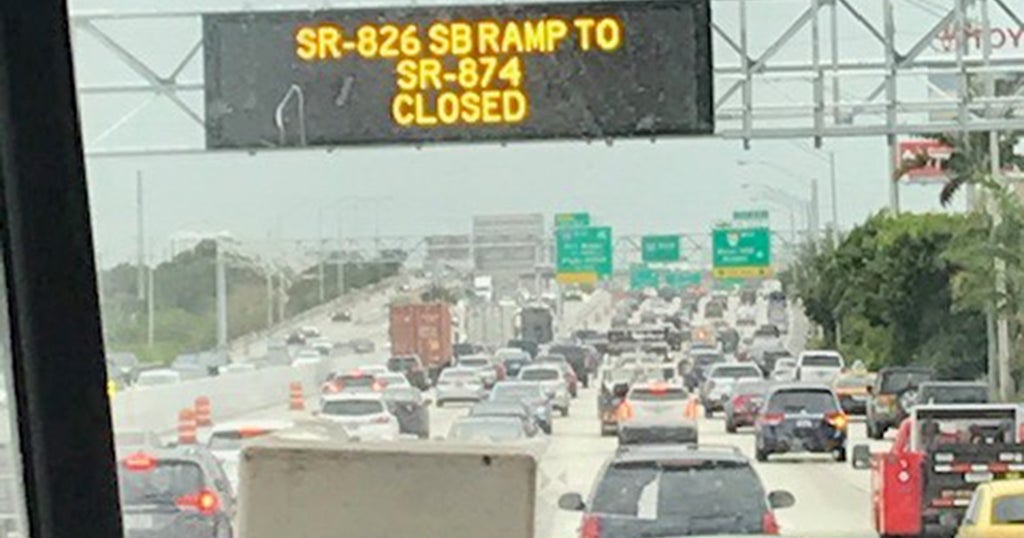Gov. Scott Proposes 15-Day Hurricane Sales Tax Holiday
MIAMI (CBSMiami/NSF) – Gov. Rick Scott reached his proposed $500 million in election-year tax and fee cuts Monday as he rolled out his support for a 15-day hurricane sales-tax holiday projected to save taxpayers $20 million.
If approved, it would be the first sales-tax holiday on hurricane supplies since 2007. The announcement came as Scott prepares to release his full 2014-15 budget proposal on Wednesday.
"This tax holiday will allow families to better protect and safeguard their homes during a storm," Scott said in a prepared statement.
The recommended discount pushes Scott's tax- and fee-cut proposals to an estimated $514 million for the upcoming legislative session.
The bulk of the savings would come through a $401 million proposal to cut a controversial 2009 hike in vehicle registration fees. That hike was approved by the Republican-controlled Legislature and signed by Scott's potential November gubernatorial challenger Charlie Crist, who is running this year as a Democrat.
Scott will also ask lawmakers --- as they craft the fiscal plan for the next year --- to extend a popular three-day back-to-school sales tax holiday on clothes, supplies and electronics to 10 days, and to shave about $33 million in state revenue by cutting approximately 50 different corporate filing fees.
The school sales tax has been estimated as being a $60 million hit to state and local revenue.
The hurricane season holiday was enacted from 2005 through 2007, following the 2004 and 2005 hurricane seasons in which seven named storms made landfall in Florida. But as the housing market went bust, and state coffers were no longer flush, the idea of the storm season tax break was set adrift.
The governor's hurricane-tax holiday proposal tops a 12-day tax break period included in a measure (SB 362) filed by Sen. Rob Bradley, R-Fleming Island.
In November, state economists, sitting as the Revenue Estimating Conference, projected that Bradley's proposal would save taxpayers about $3.8 million.
At the time, economists said the calculation was difficult as many Floridians already have the storm-preparation items around the house as standard parts of hurricane kits.
Items that would be free of the sales tax during the period would include flash lights and other self-powered lights selling for $20 or less; portable self-powered radios, two-way radios, or weather band radios that sell for $50 or less; tarps or other flexible waterproof sheeting that sells for less than $50; first-aid kits that cost under $30; packets of AA, C, D, 6-volt, and 9-volt batteries that sell for under $30; and portable generators worth less than $750.
Bradley's proposal has its first legislative hearing Feb. 3 before the Senate Commerce and Tourism Committee.
The House companion bill (HB 567) by Rep. Matt Gaetz, R-Fort Walton Beach, has yet to be scheduled for a committee appearance.
A big factor in how much of the tax and fee cuts make it into the next budget depends on projections that economists will update as the legislative session gets underway. The current projection is the state will enter the budget process with a roughly $1 billion surplus.
Scott challenged lawmakers in September to reduce taxes and fees by $500 million. Meanwhile, he also has proposed spending increases in areas such as education, tourism promotion and protection and improvements for the state's natural springs and the Everglades.
For more information: click here.
"The News Service of Florida's Jim Turner contributed to this report."



